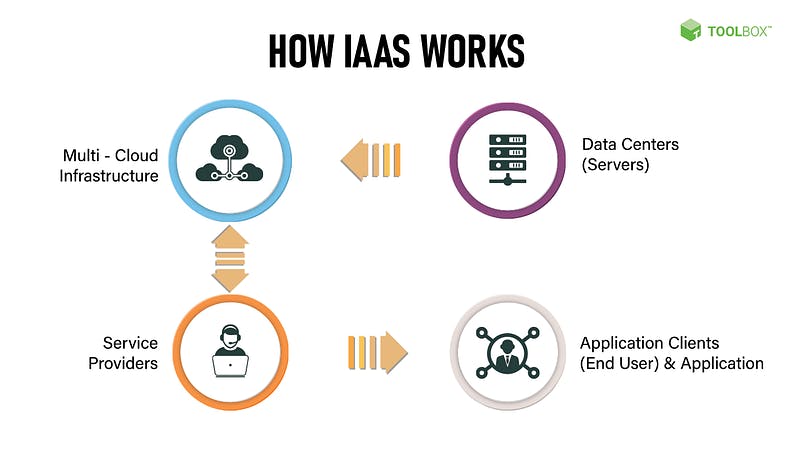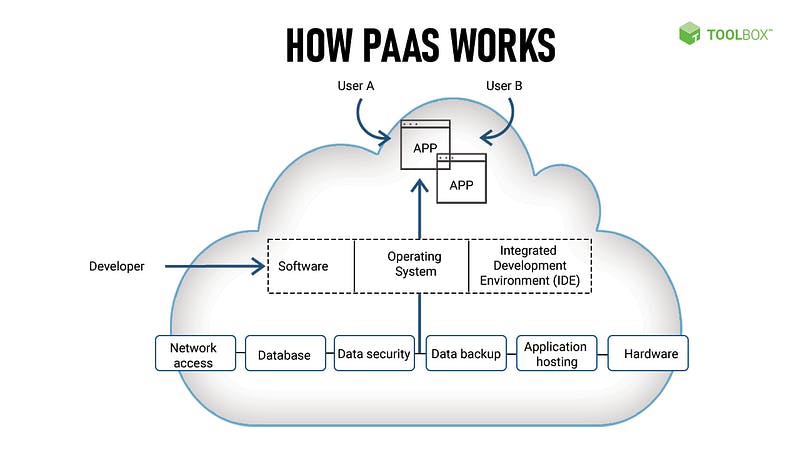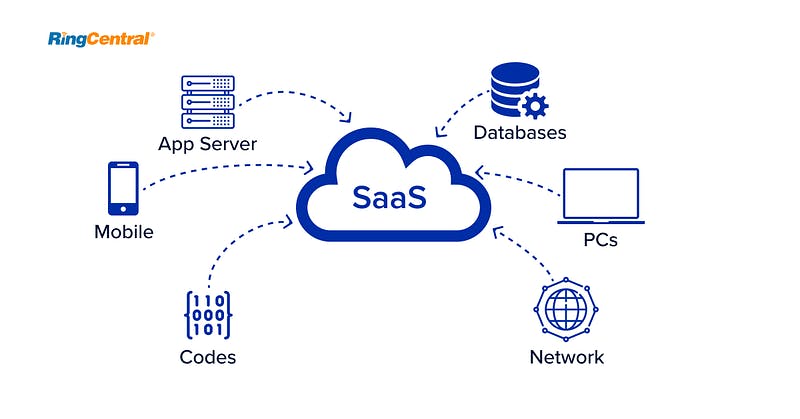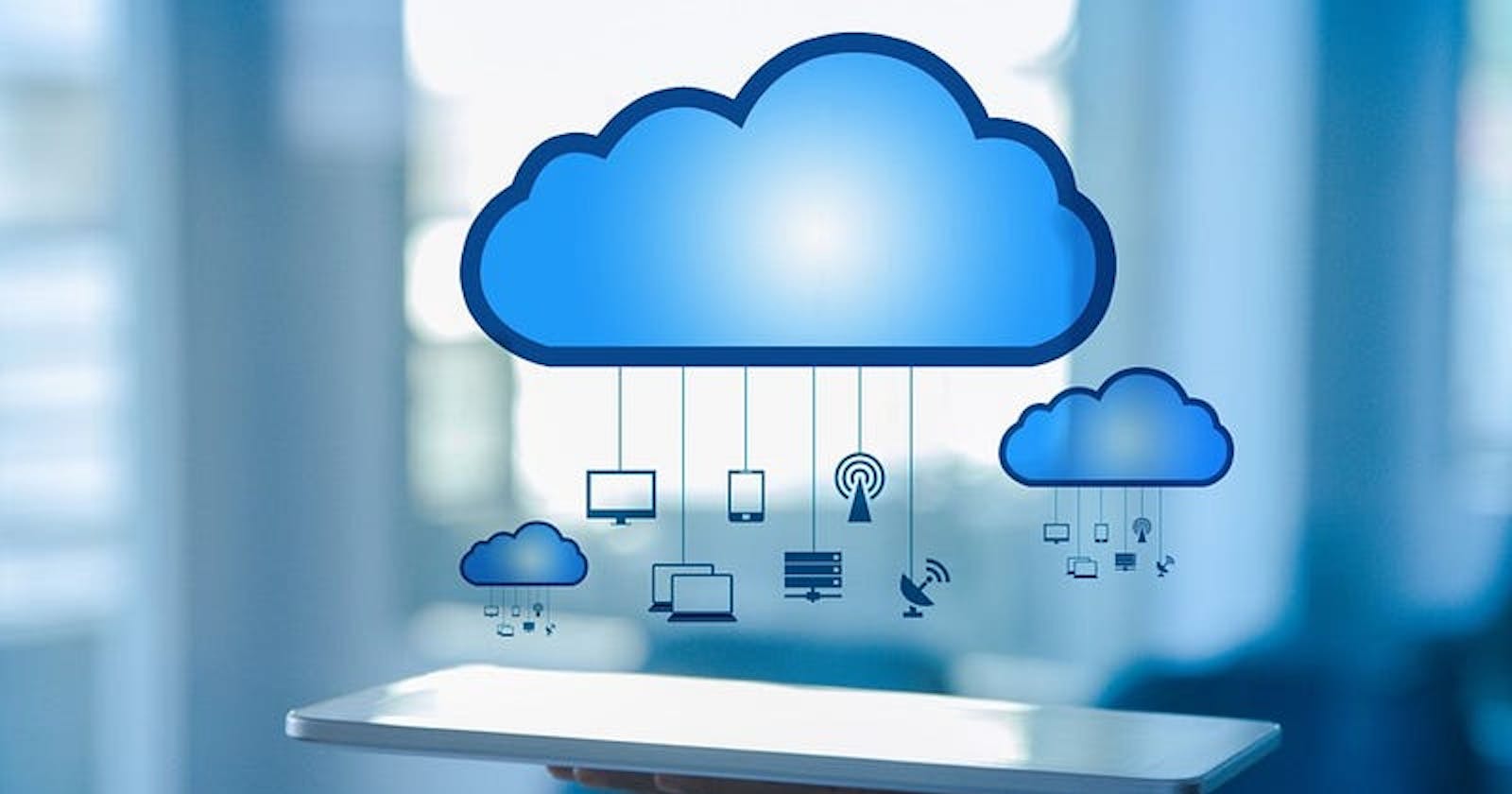Cloud Computing
I first heard about cloud computing while on a tech held space on Twitter and became intrigued, so I told myself that I was going to check it out, research it, and learn more about it because it appeared to be somewhat interesting, so here is what I learned about cloud computing.

What is Cloud Computing ?
According to the oxford dictionary, Cloud Computing is the practice of using a network of remote servers hosted on the internet to store, manage, and process data, rather than a local server or a personal computer.
In place of a physical server, cloud computing simply describes the on-demand availability to any computer service over the internet.
Without the need for costly infrastructure in each office, cloud computing enables customers to remotely access infinite data storage and software over the internet.
Types of Cloud Computing
There are three broad categories of cloud computing and they includes:
- Infrastructure:

Infrastructure as a Service, or IaaS for short is the most fundamental class of cloud computing services and refers to a service model that offers the necessary hardware and software needed to support cloud computing, such as servers, memory, storage, and networking equipment. You wouldn’t have the necessary essential tools to build the Cloud without cloud infrastructure.
2. Platform:

Platform as a Service, or PaaS, includes a third-party supplier who provides development teams with a platform to create, maintain, and manage their enterprise applications with the required infrastructure already in place. It provides a flexible environment for the creation, testing, delivery, and administration of software applications. Google Cloud Platform, Microsoft Azure, and Amazon Web Services (AWS) are three of the most popular cloud computing systems.
3. Software:

Software as a Service, or SaaS, refers to software distribution over an internet browser as opposed to downloading it onto your computer. SaaS applications are hosted and managed by cloud service providers, who also take care of any maintenance tasks like software upgrades and security patches. Users often use a web browser on their phone, tablet, or PC to connect to the application through the Internet.
What is the use of Cloud Computing ?
I’ve always wondered what the point of cloud computing was, and why people were so interested in it that they’d make a career out of it. Thanks to my research, I’ve gathered some information about the utility of cloud computing and why people are so interested in it.
The amazing thing is that we all use cloud computing without even knowing🤔

I know you’re probably cracking your brain and thinking how possible that is, let me explain. Here is how, If you use an online service to send email, edit documents, watch movies or TV, listen to music, play games, or store pictures and other files, it’s likely that cloud computing is making it all possible behind the scenes.
File Storage: With so many options for storing and accessing data and files, one might wonder what makes cloud computing unique. With cloud computing, File access and editing are made simple. Your files are accessible from any device, anywhere, with just an internet connection.
Massive Data Analysis: This is mainly for big business and companies that stores company data as we all know businesses will be at a significant disadvantage if it doesn’t collect big data and Collecting and analyzing big data can be very daunting as It demands the use of vast computing resources, which come with a hefty price tag. But with cloud computing, big data analytics are made simple, useful and inexpensive with the various services it offers for various use cases.
Software testing and development: Creating software or testing applications is a time-consuming and expensive process because it calls for installing and configuring advanced hardware and software. Numerous tools for continuous integration and continuous delivery are available from cloud computing providers, which speed up, simplify, and lower the cost of development and testing hence why cloud computing is top pick for sotware testers and developer.
The benefits outlined above, as well as other advantageous uses of cloud computing that have not been mentioned, are reasons why people are interested in cloud computing and incorporate cloud computing into their businesses to gain a competitive advantage.
Now that you’ve seen what cloud computing is all about, the uses and the different types of cloud computing, let’s look at the skills you need in order to pursue a career in cloud computing.
Because I assume with all these information you have taken in, you’re ready to take up cloud computing as a career and murder it.😎

To be able to pursue cloud computing as a career, you must first become acquainted with the skills listed below.
Knowledge of the appropriate scripting languages, such as SQL,.NET, Java, and Python.
Project management skills, including risk management and service agreement evaluation.
Knowledge of the necessary cloud computing platforms, such as Terraform, Ansible, Azure, and Google Cloud Platform.
Have a thorough understanding of cloud service platform
Familiarize yourself with the three big public cloud computing platforms, which are AWS, Microsoft Azure and GCP.
Knowledge of networking basics, including how to establish connections across resources and locations, is an essential skill in the cloud.
Good at coding APIs as building, linking and integrating different workloads in the cloud often requires the use of APIs.
Understanding the different database types, how they work and what they enable is a critical skill set for aspiring cloud professionals.
Now that you know what skills you need to pursue a career in cloud computing, let’s look at what cloud computing engineers do. To give you an idea of what you’re getting yourself into if you pursue a career in cloud computing.
What is the work of a Cloud Computing Engineer?
A cloud computing engineer is in charge of providing day-to-day technical support for cloud computing while also creating, implementing, and maintaining the cloud software infrastructure. Operating software for cloud solutions and resolving any potential problems are some of the main responsibilities of a cloud computing engineer.
This is the point at which I will conclude this article. I hope this article has given you a basic understanding of what cloud computing is and what it entails. I hope you enjoy your reading.
LIKE, COMMENT, AND SHARE with anyone who you think will benefit from it.
Love and Light!
